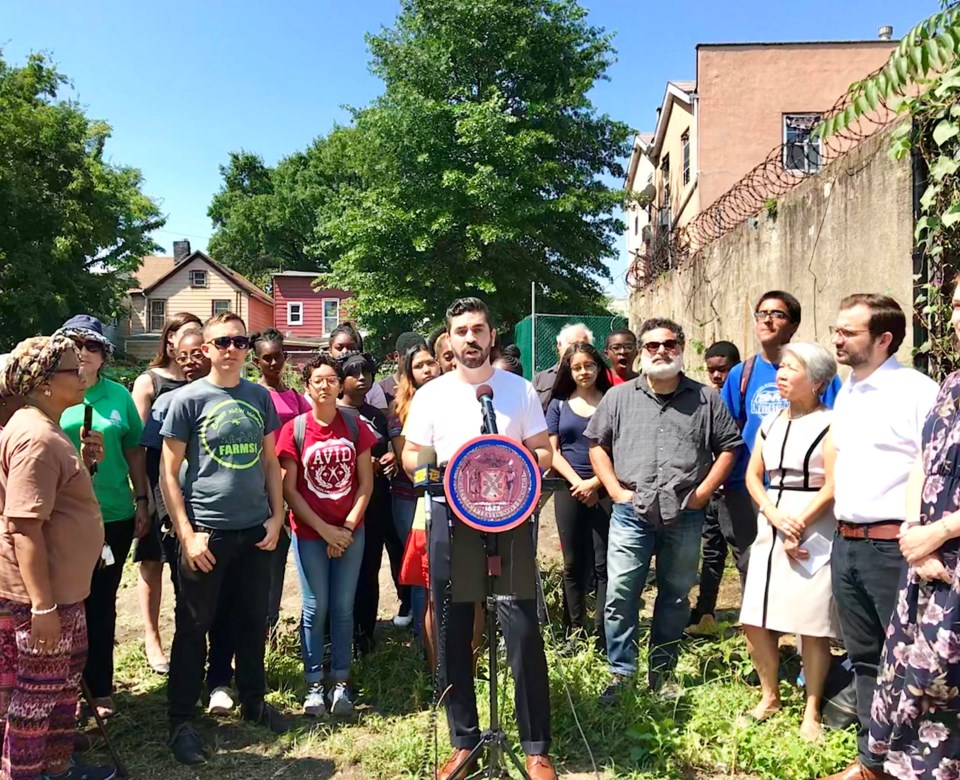East New York Councilmember Rafael Espinal introduced on Tuesday a new bill to develop a comprehensive urban agriculture plan to close the "freshness gap" in underserved communities.
The bill would lift restrictions and clear up land use police to promote the expansion of large-scale urban agriculture and community green spaces across the city. It would require the Department of City Planning to take inventory of the city's existing and potential urban agriculture spaces, as well as identify and modify zoning and land use policies to cultivate their growth.
Advocates have long argued that the expansion of green spaces and access to local food is necessary in closing the 'freshness gap' in the under-served communities which often lack access to healthy, affordable, fresh produce.
According to the Food Empowerment Project, an estimated 750,000 New York City residents live in food deserts, while about three million people live in places with stores offering fresh produce are few or far away. Supermarkets throughout the city have closed down in recent years due to increasing rents, but the disappearance of urban grocery stores has had the most serious impact on low-income communities like those in Central and East Brooklyn.
And: Healthier foods tend to be more expensive than unhealthful foods, particularly in food deserts.
"For instance, while the overall price of fruits and vegetables in the US increased by nearly 75 percent between 1989 and 2005, the price of fatty foods dropped by more than 26 percent during the same period," stated the FEP.
Yet, while unhealthy eating may be economically cheaper in the short-term, the consequences of long-term constrained access to healthy foods is one of the main reasons that low-income communities suffer from statistically higher rates of obesity, type 2 diabetes, cardiovascular disease and other diet-related conditions than the general population.
The bill, said Espinal, would make it easier for the city to protect New Yorkers' health and the environment while also bolstering the economy.
"When we support urban farms and community gardens we are creating more equitable access to affordable and healthy food," he said. "We have to strive past no New Yorker going hungry and go a step further to ensure that no New Yorker is starved of fresh food."
The new bill is backed by nearly 50 elected officials, including Borough President Eric Adams, who urged the City Council to pass it.
"This bill makes good economic sense, good environmental sense and good nutrition sense," said Adams. "Let's pass this bill!"
If the bill is approved, city officials would have until July 1 to craft the plan and deliver it to Mayor Bill de Blasio and post it to the city's urban agriculture website, reports Curbed.




